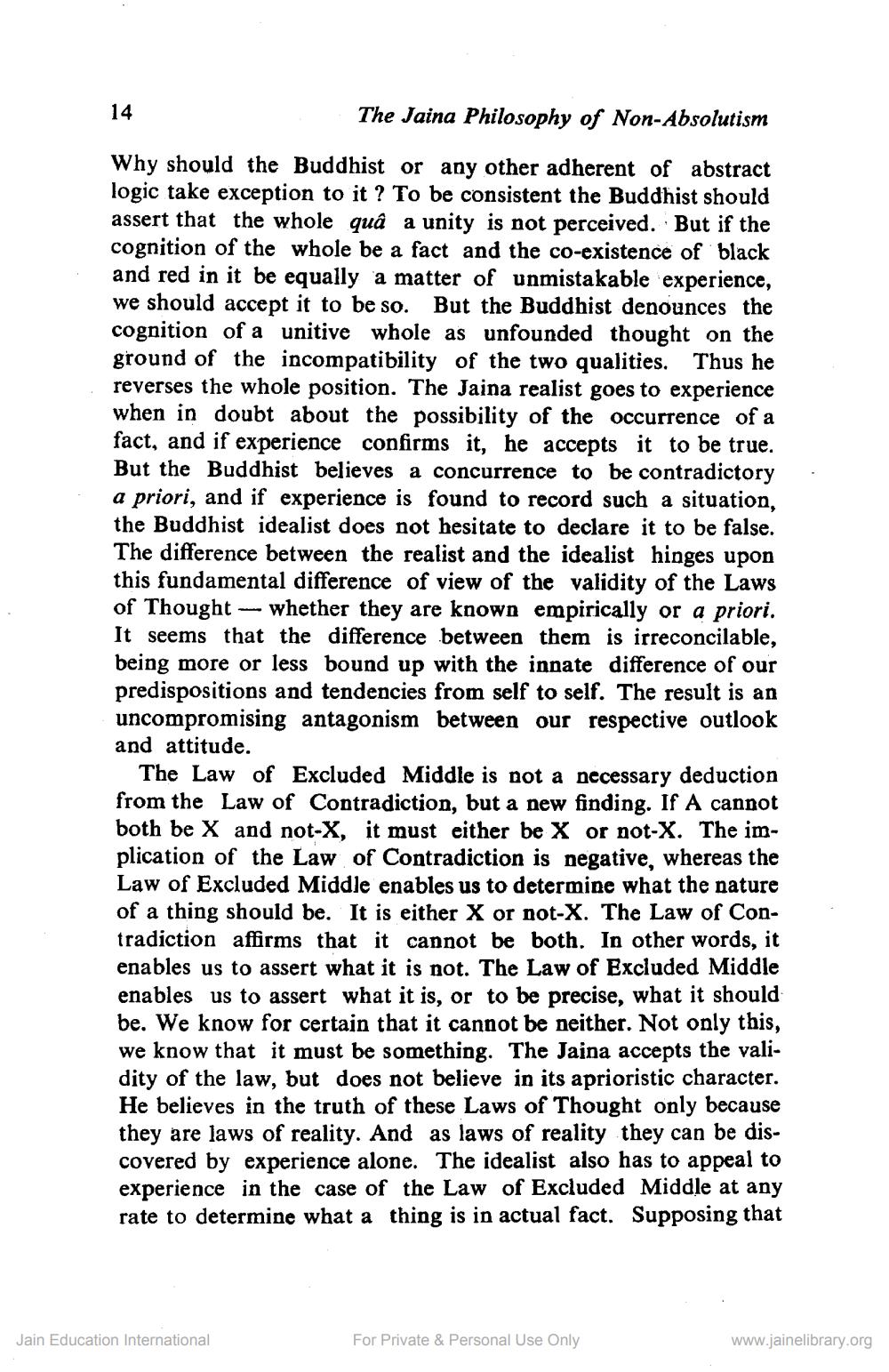________________
The Jaina Philosophy of Non-Absolutism
Why should the Buddhist or any other adherent of abstract logic take exception to it? To be consistent the Buddhist should assert that the whole quâ a unity is not perceived. But if the cognition of the whole be a fact and the co-existence of black and red in it be equally a matter of unmistakable experience, we should accept it to be so. But the Buddhist denounces the cognition of a unitive whole as unfounded thought on the ground of the incompatibility of the two qualities. Thus he reverses the whole position. The Jaina realist goes to experience when in doubt about the possibility of the occurrence of a fact, and if experience confirms it, he accepts it to be true. But the Buddhist believes a concurrence to be contradictory a priori, and if experience is found to record such a situation, the Buddhist idealist does not hesitate to declare it to be false. The difference between the realist and the idealist hinges upon this fundamental difference of view of the validity of the Laws of Thought whether they are known empirically or a priori. It seems that the difference between them is irreconcilable, being more or less bound up with the innate difference of our predispositions and tendencies from self to self. The result is an uncompromising antagonism between our respective outlook and attitude.
14
The Law of Excluded Middle is not a necessary deduction from the Law of Contradiction, but a new finding. If A cannot both be X and not-X, it must either be X or not-X. The implication of the Law of Contradiction is negative, whereas the Law of Excluded Middle enables us to determine what the nature of a thing should be. It is either X or not-X. The Law of Contradiction affirms that it cannot be both. In other words, it enables us to assert what it is not. The Law of Excluded Middle enables us to assert what it is, or to be precise, what it should be. We know for certain that it cannot be neither. Not only this, we know that it must be something. The Jaina accepts the validity of the law, but does not believe in its aprioristic character. He believes in the truth of these Laws of Thought only because they are laws of reality. And as laws of reality they can be discovered by experience alone. The idealist also has to appeal to experience in the case of the Law of Excluded Middle at any rate to determine what a thing is in actual fact. Supposing that
Jain Education International
For Private & Personal Use Only
www.jainelibrary.org




